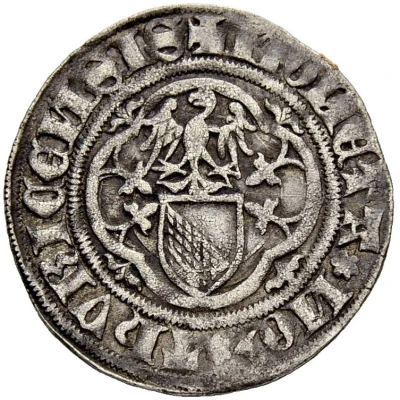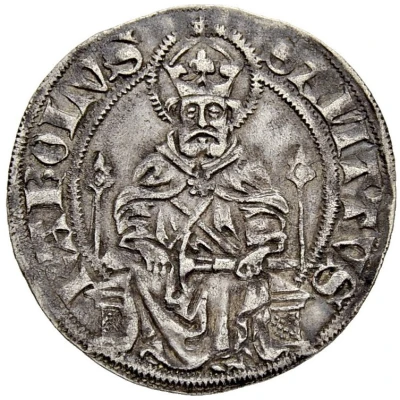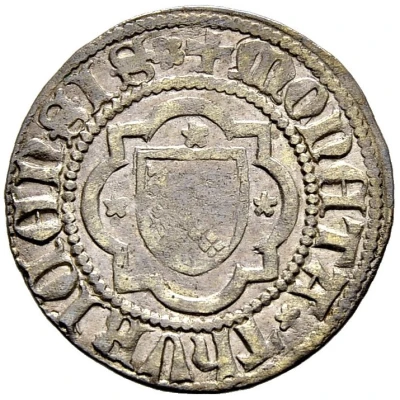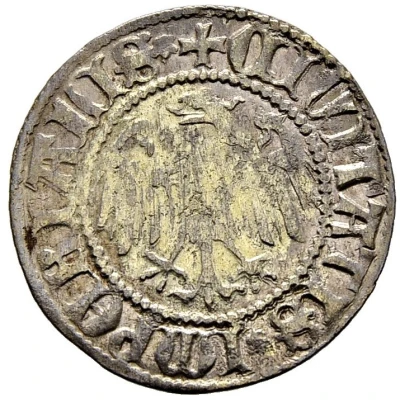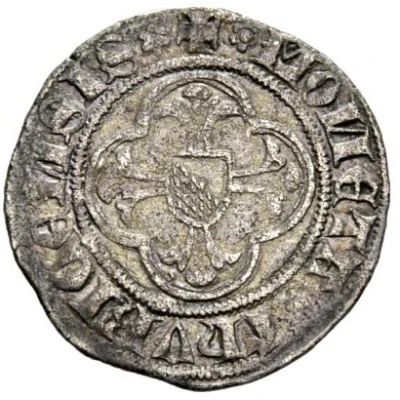
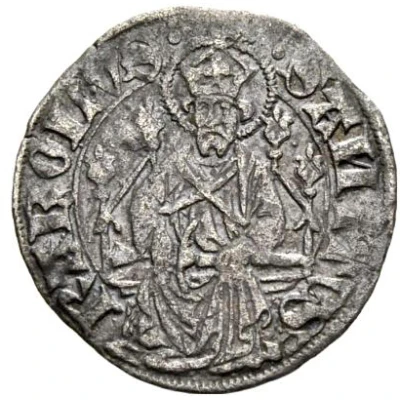

© Sincona AG
Plappart Small shield on cross ND
1424 year| Silver (.500) | 2.1 g | 24 mm |
| Issuer | City of Zürich |
|---|---|
| Period | Free imperial city (1218-1648) |
| Type | Standard circulation coin |
| Year | 1424 |
| Value | 1 Plappart = 14 Stäbler (Pfennig) |
| Currency | Pfennig (1417-1487) |
| Composition | Silver (.500) |
| Weight | 2.1 g |
| Diameter | 24 mm |
| Shape | Round (irregular) |
| Technique | Hammered |
| Demonetized | Yes |
| Updated | 2024-10-08 |
| Numista | N#242221 |
|---|---|
| Rarity index | 100% |
Reverse
Front-facing draped crowned and nimbate emperor holding a sword in his lap.
Script: Latin (uncial)
Lettering: · SAИTTVS KAROLVS ·
Lettering (regular font): · SANTTVS KAROLVS ·
Translation: Saint Charles.
Comment
Varieties of this type are known to exist:• Variant circa 1424 (Hürlimann 78)
Obverse legend: ✠ ❀ MOИETA ❀ ThVRICEИSIS ❀
Reverse legend: · SAИTTVS KAROLVS ·
Hürlimann reports a piece in the Scweizerisches Landesmuseum Zürich collection.
Weight varies between 2.01-2.25 g.
Hürlimann reports two piedfort strikes weighing 4.9 g and 3.72 g.
⸰ Example #1 (2.10 g; fine - very fine):
Auctioned by Sincona AG, Auction 16, 18 October 2013, Lot 6287. Sold for 2,200 CHF.
© Sincona AG
• Variant circa 1424 (Hürlimann 79)
Obverse legend: ✠ ❀ MOИETA ❀ ThVRICEИSIS ❀
Reverse legend: ❀ SAИTTVS KAROLVS ❀
Hürlimann reports a piece in the Scweizerisches Landesmuseum Zürich collection.
Weight varies between 1.83-2.13 g.
Interesting fact
One interesting fact about the Standard circulation coin Plappart (Small shield on cross) ND (1424) from City of Zürich made of Silver (.500) weighing 2.1 g is that it was minted during a time of great economic and political change in Europe. The coin was issued in 1424, which was just a few years after the end of the Hundred Years' War between England and France, and during the rise of the Swiss Confederation. The coin's design, featuring a small shield on a cross, was a common motif during this time period and was used by many different cities and states in Europe. Despite its small size, this coin is a valuable piece of history that provides insight into the economic and political climate of 15th century Europe.
